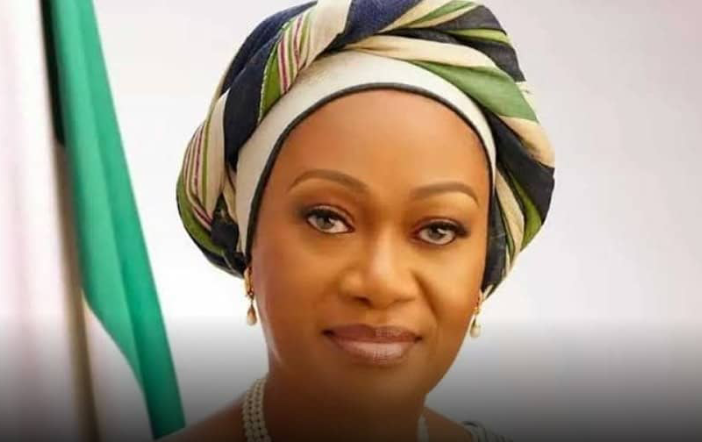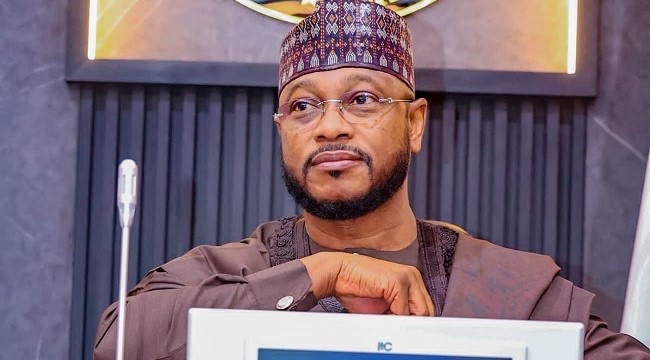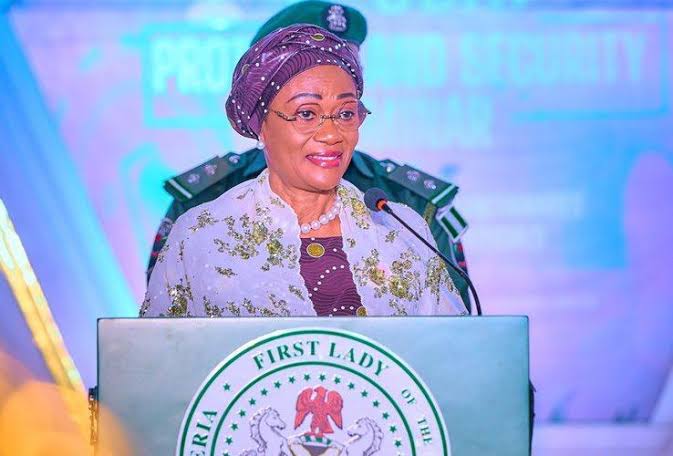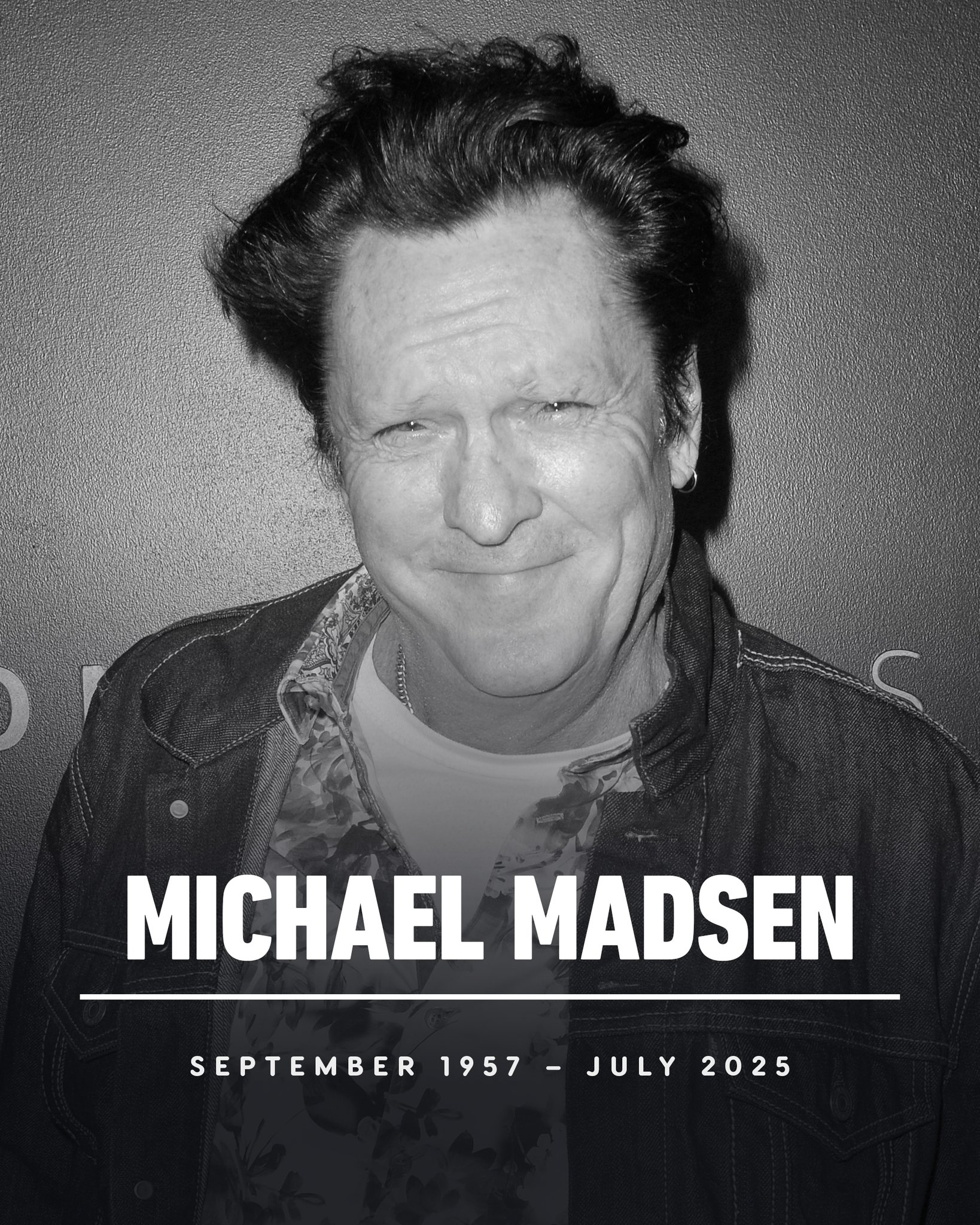
“No More Tragedy Visits”: Oluremi Tinubu Donates N1 Billion to Plateau Victims, Declares It Her Last Aid Mission

In a deeply emotional and resolute gesture, Nigeria’s First Lady, Senator Oluremi Tinubu, has donated a staggering N1 billion to victims of the recent attacks in Plateau State. On what she described as her final intervention of this nature, the First Lady made her way to the conflict-ridden state, not just with material support but with a stirring message that gripped both hearts and headlines.
The visit, marked by sorrow, compassion, and a fiery appeal for peace, saw Senator Tinubu address survivors, families of the deceased, and state leaders with words that resonated like a mother’s cry for sanity. “Women don’t fight. We don’t carry arms. We ask you, the men, to protect us and ensure our children grow up without fear,” she said firmly, her voice echoing through the tense atmosphere of mourning and weariness.
With visible pain in her eyes, she acknowledged the relentless cycle of bloodshed that has plagued Plateau and similar states across Nigeria. “God will not be pleased with the bloodshed on this blessed land,” she declared, condemning the continued violence that has stolen countless lives, homes, and dreams. Her message was not merely political rhetoric—it was a personal plea. She recalled her first visit to the state years ago and remembered the serene beauty that once defined Plateau, contrasting it with the present-day devastation.
Senator Tinubu’s declaration that this would be her final aid-related visit to Plateau struck a chord across the nation. “This will be the last time I bring aid here. I want my next visit to Plateau to be for tourism, not tragedy,” she said with finality. The statement, though laced with hope, also carried a veiled warning—Nigeria’s peace must no longer be postponed. The First Lady’s visit was not just about disbursing money; it was a call for an end to the endless mourning, a bold reminder that kindness should not be a recurring response to preventable violence.
What made the donation even more compelling was the source: Senator Tinubu stressed that the N1 billion did not come from government coffers but from her personal resources, channelled through her Renewed Hope Initiative. The initiative, which focuses on humanitarian interventions, education, and welfare, has grown significantly under her stewardship. “I’m not here to play politics. I’m using what I have to uplift lives, not to fuel greed,” she emphasized, a subtle jab at the nation’s long-standing issues of corruption and mismanaged relief efforts.
Her words painted a picture of a leader not just concerned with optics, but with impact. And in a country where public officials often lean heavily on government budgets to make charitable gestures, Oluremi Tinubu’s personal commitment stood out—sincere, direct, and refreshingly accountable.
The Plateau State Governor, Caleb Mutfwang, stood by the First Lady as she addressed the crowd. He praised her generosity and assured both her and the public that the funds would be utilized transparently and efficiently. “This is not just a donation—it’s a statement of hope. We owe it to our people to ensure that every naira reaches those in need,” Governor Mutfwang said, his voice a mix of gratitude and renewed determination. He reaffirmed his administration’s commitment to restoring peace across Plateau and other vulnerable communities within the state.
The atmosphere during the visit was heavy with emotion. Survivors wept as they recounted their losses. Many women clutched pictures of children, brothers, and husbands lost to the endless tide of attacks. Yet amidst the grief, there was a faint glimmer of renewed courage, sparked not just by the money but by the humanity behind it.
Senator Tinubu did not stop at Plateau. She made brief mention of other states grappling with natural and human-made disasters. She cited Benue and Niger States, which have suffered from devastating floods in recent months. While promising continued assistance to these areas, she hinted at a broader vision—one where the country rallies behind its wounded rather than becoming numb to the pain.
Her approach stands in stark contrast to what Nigerians have often experienced from public officials: delayed responses, politicization of aid, and hollow promises. By drawing a clear line—“this will be my last aid visit”—Oluremi Tinubu has shifted the narrative from one of dependency to one of responsibility. She has placed the onus squarely on leaders, communities, and citizens alike to bring an end to the vicious cycle of violence.
Social media has since erupted with reactions. While some Nigerians lauded her boldness and compassion, others questioned whether this was indeed her final intervention or a strategic political stance. But regardless of interpretation, the impact is undeniable. For victims who had begun to feel invisible in their own country, this gesture served as a reminder that someone still sees, still cares, and still believes in their worth.
Political analysts have begun dissecting the implications of her declaration. “It’s both a humanitarian and political masterstroke,” said Professor Charles Adekunle, a political analyst based in Abuja. “She’s not only helping the victims, but also drawing a line in the sand—demanding peace, not perpetual pity. It’s a message to everyone: Nigeria must heal.”
Critics, however, remain cautious. Some argue that a one-time donation, no matter how large, cannot substitute for systemic solutions. They stress the need for security reform, community dialogue, and economic inclusion to address the roots of violence in Plateau and beyond. Still, most agree that the First Lady’s actions have brought fresh attention to a crisis many were beginning to ignore.
As Senator Oluremi Tinubu departed Plateau, her final words hung in the air like a silent prayer and a firm resolution. “Let this be the last time. The next time I come, I want to celebrate with you. I want to see Plateau rise again.”
In a nation grappling with fatigue from tragedy after tragedy, her message pierced the fog of despair. Whether or not it will mark a turning point remains to be seen. But one thing is certain—this was not just a donation. It was a declaration of hope. And perhaps, just perhaps, it was the beginning of the end of Nigeria’s darkest chapters.


